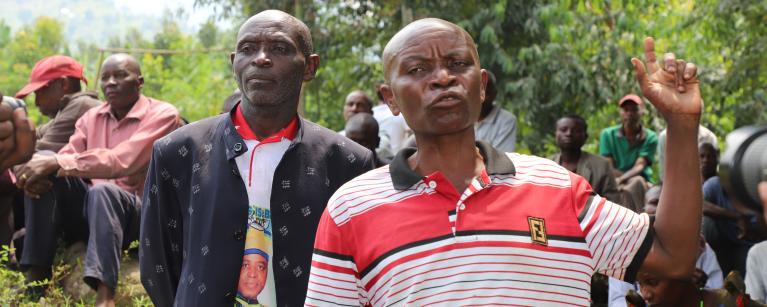In July 2024, local humanitarian actors gathered in Kasese District, southwestern Uganda, for a learning journey event organized by Oxfam to share insights and progress in their disaster response efforts. The event, part of Oxfam's ongoing initiative to support the Localization Agenda, highlighted the increasing role of local organizations in leading humanitarian efforts in the region.
Edward Mwebaze, Oxfam's Head of Programs, emphasized that the humanitarian platform supported by Oxfam has empowered 58 local NGOs and community-based organizations (CBOs) to take charge in responding to disasters like floods and landslides. "The platform was established to ensure local actors have access to the space, resources, and decision-making power previously held by international Organisations and donors," said Mwebaze.
The learning event gave local leaders a chance to showcase how they have reduced disaster response times, addressed community needs, and built stronger ties with district leaders. John Baptist Byaruhanga, Humanitarian Coordinator at World Voices Uganda, emphasized the success of the project in enabling local actors to respond within 72 hours of disasters. “We’ve eliminated the bureaucratic delays that often slow down international organizations,” Byaruhanga noted.
Participants also appreciated Oxfam's partnership in advancing the 2016 Localization Agenda, which aims to shift power from international organizations to local actors in crisis-affected countries. Funded by the Conrad N. Hilton Foundation, Oxfam’s project aligns with the Grand Bargain agreement, which commits global humanitarian aid to supporting local and national actors.
Catherine Nakasinde Martha, Chairperson of the Western Uganda Local Humanitarian Platform, highlighted the broader community impact. “The learnings we’ve gained have helped us not just respond to disasters, but also unite our communities,” she said. The visibility of local actors has also increased within Kasese, allowing them to influence local leaders more effectively.
Jerome Kule from Creations Forum Afrika, Kasese, explained that the project has helped local actors strengthen their collaboration with district authorities. “Our relationship with district leadership has grown because they see us actively responding to disasters, complementing their efforts,” Kule shared.
Despite these achievements, the local actors face funding challenges. During the event, Gard Benda, Executive Director of World Voices Uganda, noted that while local actors have made significant strides, they continue to face financial limitations. This was echoed by Rebecca Angumye from JESE, who recounted that during a recent drought response in Ntoroko District, limited funds allowed them to reach only three-quarters of the affected population with WASH and non-food items out of the three thousand affected population that were assessed for support.
Mr. Mustafa, Principal Assistant Secretary of Kasese District, commended Oxfam for empowering local actors but emphasized the need for post-disaster support, including psychosocial services and early warning systems. He also called for the integration of Indigenous knowledge to address local challenges, noting that communities understand their own needs best.
The learning event showcased the growing role of local actors in disaster response, highlighting the success of Oxfam’s localization efforts and the potential for continued progress despite ongoing funding hurdles
